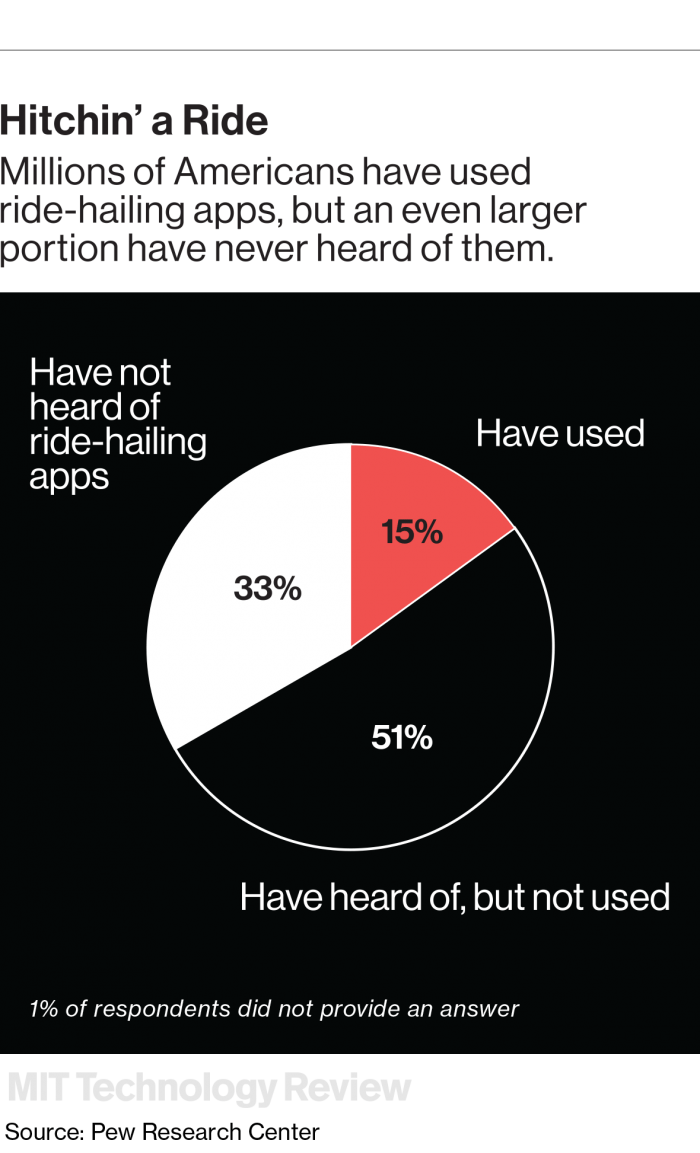This Is How Americans Really Feel About Uber and Lyft
If you follow technology news, you’re likely to see a headline about Uber or ride-hailing apps just about every day. But despite their popularity, just 15 percent of Americans have hitched a ride, according to a new report, and 33 percent of the country has never even heard of Uber or Lyft.
A survey of over 4,700 American adults conducted by the Pew Research Center and released Thursday represents the most detailed look yet at how the country uses ride-hailing services, and Americans’ attitudes toward them. The report paints a picture of a nation sharply divided by geography, income, and age.

As one might expect, users tend to be young, well-educated, and live in urban centers. But the numbers are stark: 29 percent of college graduates have used a ride-hailing service, while just 6 percent of people who have a high school diploma or less can say the same. Usage is also heavily skewed toward the affluent: a quarter of people with incomes above $75,000 were users, as opposed to 10 percent of people who earned $30,000 or less. And usage in rural areas was almost nonexistent, with just 3 percent of respondents counting themselves as users (the survey revealed no discernable differences in usage across racial or gender lines).
Perhaps the most intriguing finding was in how usage affected people’s attitudes toward the services. The rise of Uber and Lyft has provoked a heated debate over the companies’ labor practices, as well as contention over whether they should be regulated in the same way as taxi services.
The report found that users were much more likely than non-users to say that the services should not be regulated like taxi companies. That’s perhaps unsurprising, but it remained true despite users’ political leanings: 48 percent of people who identified as political liberals—a demographic that typically favors regulation of business practices—said a flexible approach to regulation was most appropriate, compared to just 30 percent who said the services should be subject to the same laws as taxis.
(Read more: Pew Research Center, Washington Post, Vox)
Keep Reading
Most Popular
Large language models can do jaw-dropping things. But nobody knows exactly why.
And that's a problem. Figuring it out is one of the biggest scientific puzzles of our time and a crucial step towards controlling more powerful future models.
How scientists traced a mysterious covid case back to six toilets
When wastewater surveillance turns into a hunt for a single infected individual, the ethics get tricky.
The problem with plug-in hybrids? Their drivers.
Plug-in hybrids are often sold as a transition to EVs, but new data from Europe shows we’re still underestimating the emissions they produce.
Google DeepMind’s new generative model makes Super Mario–like games from scratch
Genie learns how to control games by watching hours and hours of video. It could help train next-gen robots too.
Stay connected
Get the latest updates from
MIT Technology Review
Discover special offers, top stories, upcoming events, and more.